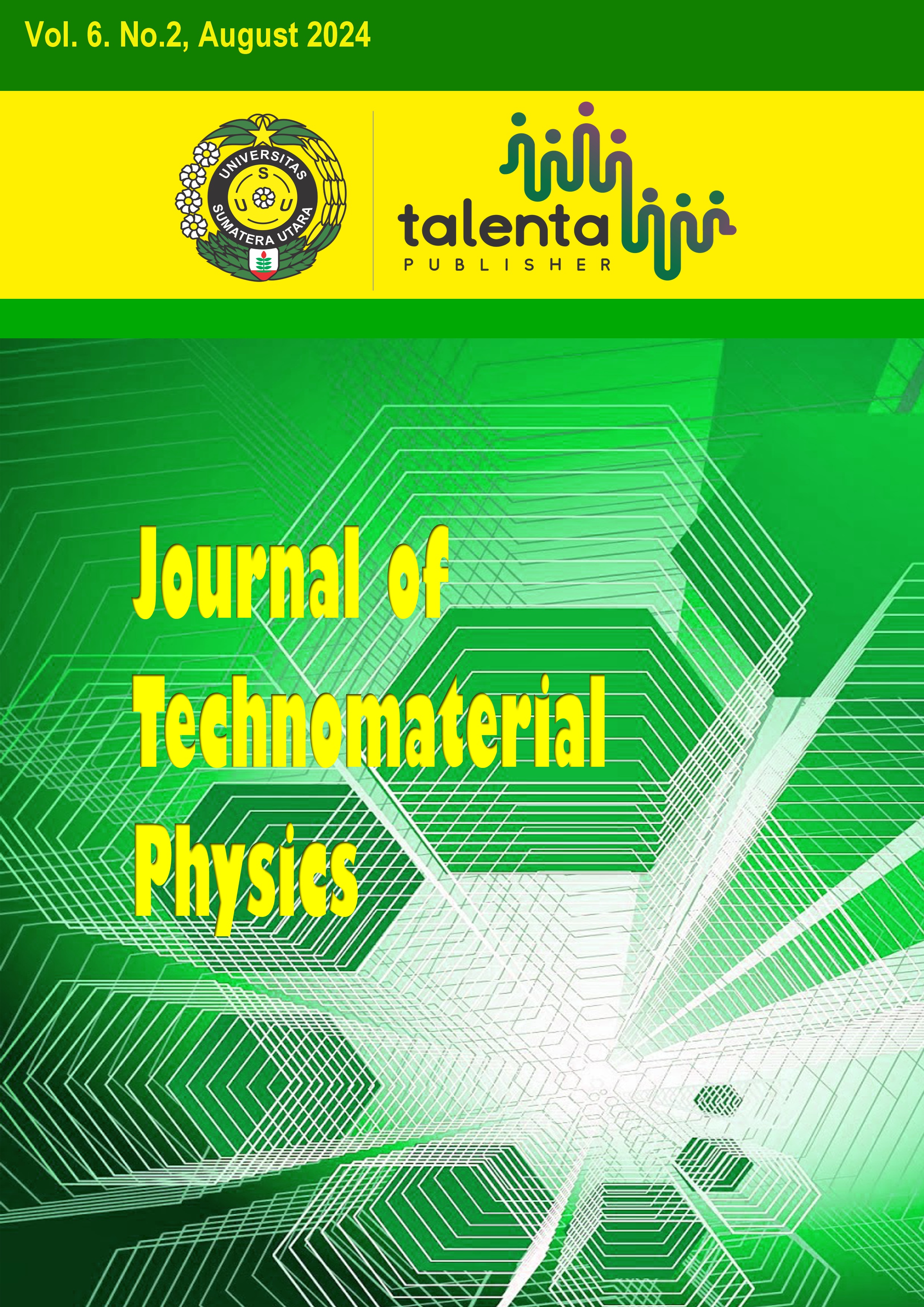Manufacture and Characterization of Polymer Concrete Using Duck Egg Shell Powder, Areca Nut Fiber, and Epoxy Resin
DOI:
https://doi.org/10.32734/jotp.v6i2.13915Keywords:
Areca Nut Fiber,, Eggshell Powder,, Epoxy Resin,, Polymer ConcreteAbstract
This research investigates the optimal composition of polymer concrete and its effects on physical and mechanical properties. Variations in composition were tested using a mixture of sand and eggshell powder in a 2:1 ratio, combined with areca nut fiber at concentrations of 0%, 4%, 8%, 12%, and 16%, and epoxy resin at levels of 20%, 25%, and 30%. Polymer concrete specimens were molded using a hot press at 90°C for 20 minutes. The study found that the optimal physical properties were achieved with a density of 1.61 g/cm³, porosity of 7.55%, and water absorption of 6.75%. The minimum physical properties recorded were a density of 1.11 g/cm³, porosity of 0.95%, and water absorption of 0.62%. The highest values observed for mechanical properties were a flexural strength of 54.13 MPa, compressive strength of 29.20 MPa, and tensile strength of 13.92 MPa. Conversely, the lowest mechanical properties were a flexural strength of 32.95 MPa, compressive strength of 8.65 MPa, and tensile strength of 2.94 MPa. SEM-EDX analysis revealed the presence of cavities within the samples and uneven distribution of epoxy resin, indicating areas where the resin clumped. The physical and mechanical properties of the polymer concrete in this study conform to the SNI 03-0691-1996 standards.
Downloads
Downloads
Published
Issue
Section
License
Copyright (c) 2024 Journal of Technomaterial Physics

This work is licensed under a Creative Commons Attribution-ShareAlike 4.0 International License.












